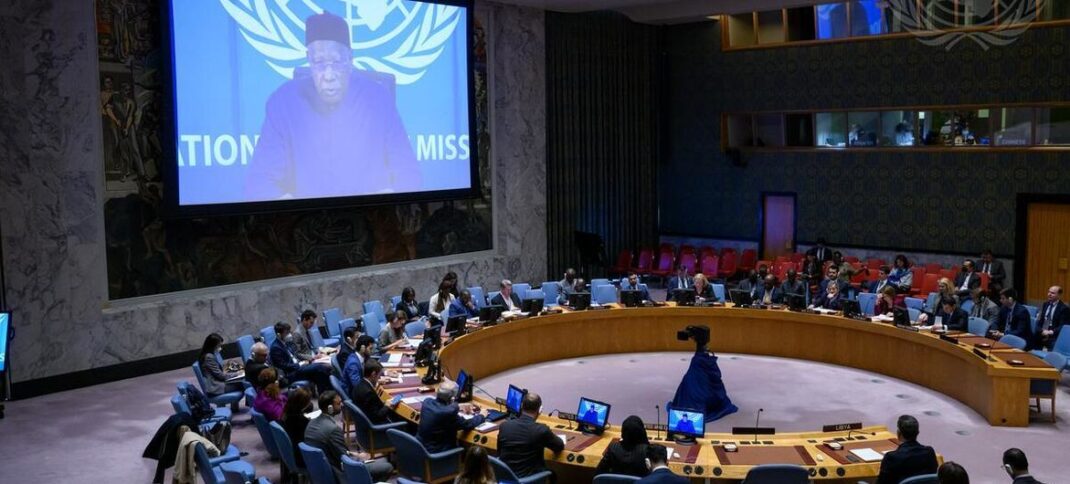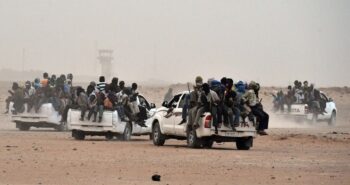Ephrem Kossaify

Special envoy Abdoulaye Bathily says the population is frustrated with the failure of their leaders to steer the country toward peace
Divisions remain between factions over draft legislation for elections, more than two years after voting was indefinitely postponed.
Thirteen years after the revolution that toppled Muammar Qaddafi’s regime, Libya continues to grapple with political turmoil and the elusive quest for sustainable peace and democracy, the UN’s special envoy to the country said on Thursday.
Abdoulaye Bathily lamented the entrenched nature of the status quo in Libya, and the continuing deadlock among key institutional leaders that has hindered progress towards long-awaited national elections.
Speaking during a Security Council meeting ahead of the anniversary of the 2011 Libyan revolution on Feb. 17, Bathily described widespread frustration among the Libyan people about the failure of their leaders to steer the country toward peace and progress.
He said that despite the completion in 2023 of work by the 6+6 Joint Committee of the House of Representatives and High State Council to develop a constitutional and legal framework for elections, none of the major factions in the country “have made a decisive move from their initial position, with each continuing to articulate preconditions for their participation in the dialogue as a way to maintain the status quo, which seems to suit them.”
The political impasse continues between the UN-recognized Government of National Unity in Tripoli, led by Prime Minister Hamid Mohammed Dbeibah, and the Government of National Stability in the east of the country, which is led by Prime Minister Osama Hamad and aligned with the House of Representatives and the Libyan National Army under the command of Gen. Khalifa Haftar.
The deadlock between these rival governments has persisted since the indefinite postponement of elections initially scheduled for December 2021. Mediation efforts since then have focused on facilitating an agreement on a new road map for national elections to unify the government.
In March 2023, the HoR and the GNU-aligned High State Council established the 6+6 Joint Committee, comprising six representatives from each body, and tasked it with drafting the electoral laws required to enable elections. However, leaders of the two groups failed to reach agreement on various aspects of the draft legislation.
Outlining the diverging views, Bathily said that while the HoR’s speaker Aguila Saleh prioritizes the formation of a unified government, emphasizes the need for the HoR to be established as the sole legitimate political body, and says he will only participate if the two rival governments are either included or excluded altogether, Mohammed Takala, the president of the High State Council, has rejected electoral laws published by the HoR and advocates reverting to an earlier version of the legislation.
Dbeiba, for his part, insists on remaining in office until elections are held under the supervision of the GNU. Meanwhile Haftar and Mohammed Al-Menfi, the head of Libya’s Presidential Council, have differing views on the inclusion of both governments in talks.
“The way forward requires that all issues that prevented elections from taking place in 2021 be resolved through negotiations and a political settlement between the key institutional stakeholders,” said Bathily, as he urged all factions to engage in talks without preconditions.
He also highlighted the need to address the fears and concerns of stakeholders, including the need for a temporary mechanism to ensure the “transparent management and equitable distribution of resources, safeguards to provide a level playing field for all candidates, and guarantees that elections do not result in a winner-takes-all scenario to the detriment of the others.”
Bathily underscored the importance of regional support for Libya and reiterated his call for a “unified and coordinated approach” by the international community.
The human rights, humanitarian needs and protection of migrants, refugees and asylum seekers are also of growing concern, he added, citing reports of a significant increase in the numbers of Sudanese refugees entering Libya in recent weeks.
UN agencies continue to have only limited access to refugees at Libya’s border with Sudan and in official detention centers, Bathily said, and he called on Libyan authorities to “ensure full, unhindered access to all persons in need of protection.”
He expressed alarm at the continuing “collective expulsions of migrants and refugees across the borders between Libya and neighboring countries,” and reiterated his call for authorities in all of the countries involved “to end forced expulsions, which are violations of international law.”
He also repeated his calls for “full access and independent investigations into all alleged violations and abuses in Libyan detention facilities, including in Bir Al-Ghanam and Al-Assa detention facilities, where the situation is particularly dire.”
_________________




